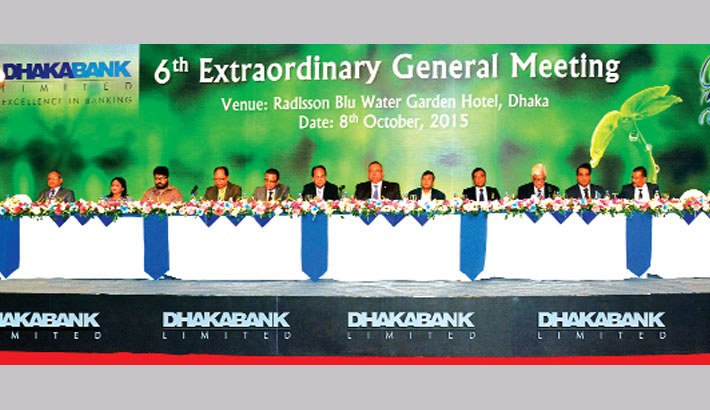Banks in trouble with dinars bought from Libya returnees
Three state-owned commercial banks are now in trouble after buying Libyan currency from Bangladeshis who had returned from the war-torn country in 2011.
Sonali, Janata and Agrani banks had purchased 58 lakh Libyan dinars equivalent of Tk 32.22 crore at current exchange rates from the expatriates at Hazrat Shahjalal International Airport in Dhaka, mainly on humanitarian grounds.
Of the amount, Sonali bought 10 lakh dinars, Janata 25 lakh, and Agrani 23 lakh, officials of the banks said.
The Libyan dinar is not currently convertible internationally, the officials said, adding that the currencies have been lying idle in their vaults.
An official of Sonali Bank said they will now request Bangladesh Bank to see whether it can exchange the dinars by corresponding with the Libyan central bank. Agrani Bank already wrote to the central bank, seeking steps.
The officials said they had purchased the dinars at verbal instructions from Bangladesh Bank officials and government high-ups. The World Bank at that time had provided around $30 million for repatriating the workers who returned from Libya.
News:The Daily Star/13-Oct-2015BB warns cooperatives on money laundering risks
Bangladesh Bank has instructed all cooperative firms to put in place policies and procedures to prevent and detect money laundering.
Instructions include systems and controls to identify, assess and monitor money-laundering risks as well as customer due diligence measures.
Cooperative firms have to ensure that their systems and controls enable them to identify suspicious transactions, according to a notice issued by the central bank's Bangladesh Financial Intelligence Unit yesterday.
The guidelines also asked the firms to allocate overall responsibility for anti-money laundering efforts. They must also appoint a chief anti-money laundering compliance officer and set a contact point for the firm's anti-money laundering activity.
There must be a policy regarding members, shareholders and subscribers of a cooperative firm, said the circular.
Earlier, the BB issued similar guidelines for banks, non-bank financial institutions, insurance companies and microcredit organisations in an effort to prevent money laundering in Bangladesh.
News:The Daily Star/13-Oct-2015
BB steps in to execute jute packaging law
The central bank has stepped in to help the government implement the jute packaging law, which remains pending due to resistance by traders.
Bangladesh Bank yesterday asked all banks not to lend money to organisations and traders that do not use jute bags and sacks to pack paddy, rice, pulses, wheat, fertiliser and sugar as per the Mandatory Jute Packaging Act 2010.
The law makes it mandatory for manufacturers to use packaging materials made of at least 75 percent of jute fibre.
First-time rule violators face a Tk 50,000 fine or a year in prison. Second-time offenders would be subjected to both the penalties.
Bangladesh Bank's instruction came after State Minister for Textiles and Jute Mirza Azam said the government would soon take crash programmes to promote the use of jute-based packaging and stop plastic packaging in a month or two.
Speaking to The Daily Star last month, Azam blamed plastic bag traders for the current situation.
The proliferation of plastic packaging has forced some jute mills to close and discouraged many others from expanding business.
Public and private millers have been suffering losses as demand for jute-based products is not increasing.
If the local market with 160 million consumers begins using jute bags, many millers will not need to export jute and jute goods, according to Najmul Huq, managing director of Janata Jute Mills.
This will encourage new investments and farmers will get due prices of their produce riding on the domestic demand alone, he said earlier.
Khondaker Golam Moazzem, additional research director of Centre for Policy Dialogue, said the full enforcement of the packaging law will create demand for 84 crore jute bags a year for selected agricultural and non-agricultural products.
By one estimate, about 70 percent of local raw jute will be used up in the production of those bags, he said.
News:The Daily Star/13-Oct-2015
BRAC Bank rejoinder: Two officials were picked up for interrogation, not arrested
.jpg)
Some news reports in a section of media regarding taking two employees of Rajshahi Branch of BRAC Bank Limited under police custody in Japanese citizen murder case has drawn our attention.
Some media are filing reports that they were arrested by police. In fact they were taken into police custody for interrogation purpose. The reports with inappropriate words are undermining brand image of BRAC Bank Limited, which as a corporate organization is in no way related to the incident that led to police investigation.
BRAC Bank Limited strongly protests the news reports that associate the bank to the incident.
However, BRAC Bank Limited is providing all cooperation to law enforcing agencies as part of the ongoing investigation into Japanese citizen Kunio Hoshi murder in Rangpur. We will strictly abide by procedures as appropriate to an incident that is under investigation.
News:Daily Sun/11-Oct-2015Dhaka Bank holds EGM
 Reshadur Rahman, Chairman of the Board of Directors of Dhaka Bank Limited, is seen at the bank’s 6th Extra-ordinary General Meeting at Utsab Hall of Radisson Blu Water Garden Hotel in Dhaka on Thursday.
Reshadur Rahman, Chairman of the Board of Directors of Dhaka Bank Limited, is seen at the bank’s 6th Extra-ordinary General Meeting at Utsab Hall of Radisson Blu Water Garden Hotel in Dhaka on Thursday.
The 6th Extra-ordinary General Meeting (EGM) of Dhaka Bank Limited was held at Utsab Hall of Radisson Blu Water Garden Hotel in Dhaka on Thursday.
Reshadur Rahman, Chairman of the Board of Directors of the bank, presided over the meeting, said a press release.
During the meeting, the shareholders of the bank unanimously passed the resolution for issuance of Dhaka Bank Non-convertible Privately-Placed 2nd Subordinated Bond for Tk 300 crore eligible as Tier II Capital of the bank subject to approval of Regulatory Authorities.



